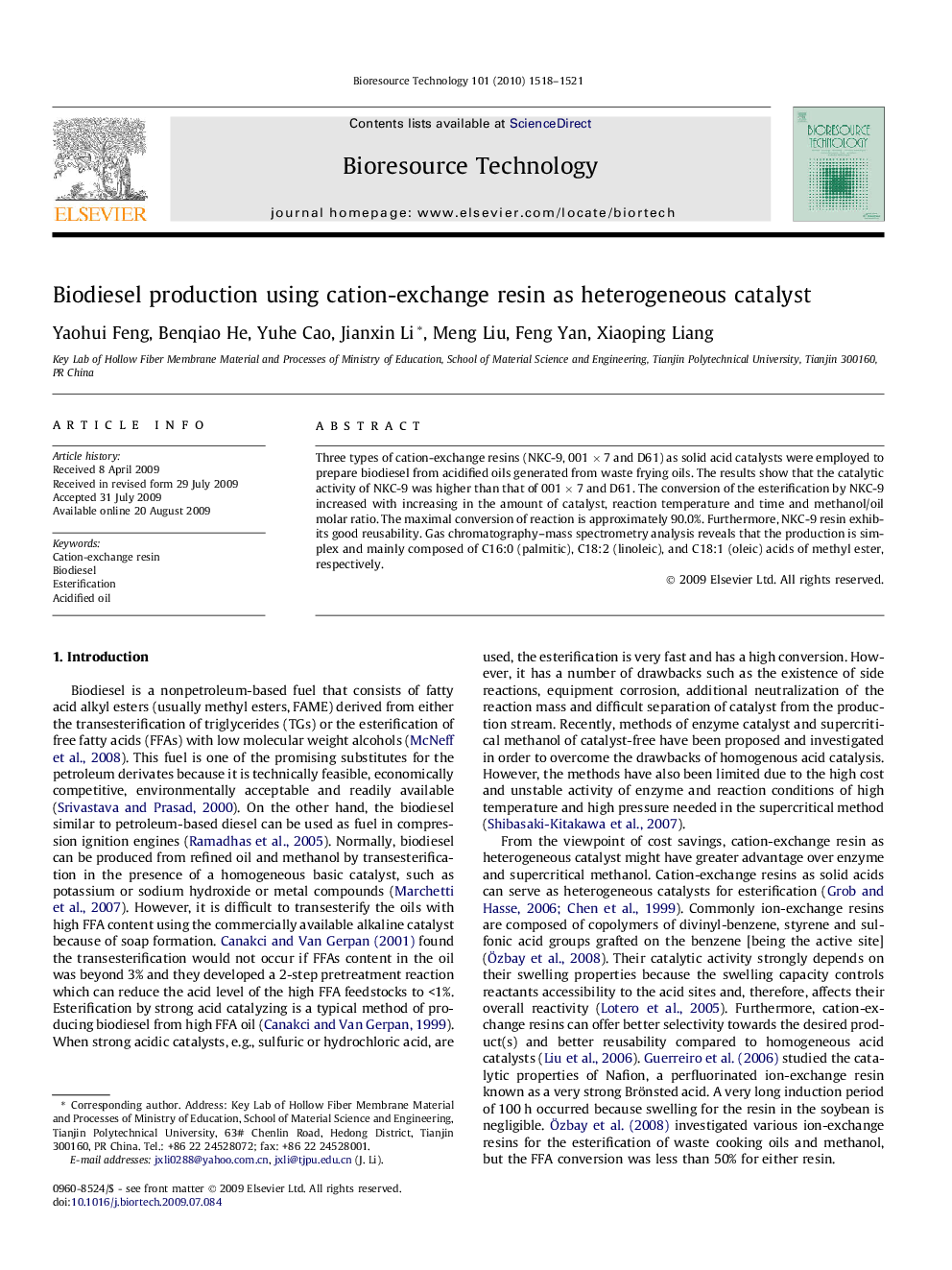| Article ID | Journal | Published Year | Pages | File Type |
|---|---|---|---|---|
| 682609 | Bioresource Technology | 2010 | 4 Pages |
Abstract
Three types of cation-exchange resins (NKC-9, 001 × 7 and D61) as solid acid catalysts were employed to prepare biodiesel from acidified oils generated from waste frying oils. The results show that the catalytic activity of NKC-9 was higher than that of 001 × 7 and D61. The conversion of the esterification by NKC-9 increased with increasing in the amount of catalyst, reaction temperature and time and methanol/oil molar ratio. The maximal conversion of reaction is approximately 90.0%. Furthermore, NKC-9 resin exhibits good reusability. Gas chromatography–mass spectrometry analysis reveals that the production is simplex and mainly composed of C16:0 (palmitic), C18:2 (linoleic), and C18:1 (oleic) acids of methyl ester, respectively.
Related Topics
Physical Sciences and Engineering
Chemical Engineering
Process Chemistry and Technology
Authors
Yaohui Feng, Benqiao He, Yuhe Cao, Jianxin Li, Meng Liu, Feng Yan, Xiaoping Liang,
